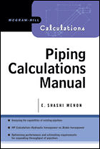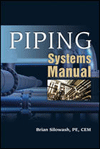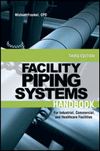Advocacy in action
ASA's government affairs office ends year of positive legislative outcomes with huge victory, continuing to be a voice for members.

The word “essential” has taken on a bit of a new meaning since the onset of 2020 and the coronavirus pandemic. When talking about how business behaved throughout the ups and downs of the past 20 months, many mention how thankful they were to be an essential business, and how this title allowed doors to remain open and business to continue.
Steve Rossi, director of government affairs at ASA, along with more than 1,800 engaged ASA members, are largely to thank for that.
When uncertainty struck, Rossi wasted no time corralling members to come together for the industry. “ASA members sent about 8,000 letters to federal legislators to make sure our industry was categorized as essential,” he says. “The legislators responded in an incredible way. The efforts of our members played a huge role in allowing businesses to remain open.”
Since that time, there has been no lack of legislative issues for ASA and its members to tackle next. On September 22 of this year, instead of its usual in-person visit to Capitol Hill, 27 ASA member companies participated in a virtual fly-in in conjunction with association partner National Association of Electrical Distributors, which was a huge success.
2021 Virtual Fly In action items
In conjunction with NAED ASA held 50 different virtual meetings with congressmen and senators.
“Prior to the fly-in, we hosted a training session where we briefed participants on the top five areas of concern for our industry that we would be discussing during the virtual fly in,” Rossi explains.
According to Paul Kennedy, CEO of ASA distributor member Dakota Supply Group, holding the fly-in virtually made it more efficient. “We were able to accomplish more in a compressed amount of time,” he says. “In-person is always preferable, but when you’re on The Hill it can be difficult running around to varying offices, making it through security, etc. So with the virtual meetings, we were able to be more efficient with our time.”
Kennedy adds that during the virtual fly in, he felt as though there was more overall participation from senators and/or congressmen.
Jeremy Fuller, manager, purchasing for Texas Plumbing Supply, says the virtual option for the fly-in offered a win-win solution. “It is much faster and easier to connect from the comfort of our own offices. If we can save the precious minutes and hours and other resources spent traveling and still have our voices heard, then it is win-win,” he explains. “This platform also allowed us to take better notes during meetings and have larger groups sit in on visits, where normally space and time is much further constrained. We took the opportunity to propose in-person site visits to our senators, allowing constituents to meet with them at our branch locations in the future.”
Members spoke with legislators about a few key items: LIFO — last in, first out inventory evaluation, President Biden’s spending bill, the bipartisan infrastructure bill, corporate tax laws and estate tax regulations.

“About half of our members use LIFO,” Rossi explains. “There are some proposals to change or repeal how LIFO is approached, which essentially would require businesses to pay taxes on profits that weren't even realized yet — some could have inventories of $10 million or more that they would have to pay taxes on, which would be devastating.”
The regulations surrounding estate tax are also of particular concern to the industry, as so many businesses are family-owned, Rossi notes. “In cases where the owner of a small business passes away and wants to leave it to their family member, many would likely have to sell the business just to afford taxes on it,” Rossi says.
Fuller says the estate tax, death tax and REINS Act were top concerns he aimed to address during the fly- in. “As a family business, we can't afford to pay simply for being a successful multigenerational company,” he says. “If publicly traded corporations don't get hit with a 40% valuation tax with each passing generation, neither should small, independent and family-owned businesses. The tax cuts and Jobs Act helped stimulate business growth, allowing for prosperity of all team members and families supported by those businesses. We need those protections extended to spur continued growth.”
Fuller adds that the REINS Act instills confidence in both the executive and legislative branch by maintaining a balance of power. “Significant economic impacts should require a specific majority vote. We spoke with both Senator Cruz's office and Senator Cornyn's office, and their staff members were happy to hear from us and invited us to stay in touch,” he says. “We look forward to continued communication that was made possible by the ASA government affairs team.”
Additionally, Rossi says the members discussed proposed financial regulations with legislators. “There are current proposals that would require reporting of all business and personal financial transactions of more than $600,” he says.
Throughout the virtual meetings, members discussed concerns related to these topics, and according to Rossi, they were well-received.
“It was really productive. We spoke with both Democrats and Republicans,” he says. “Obviously, you’re not going to have everyone agree on these things, but we had productive conversations with people from both sides and they were receptive to the majority of our concerns.”
Kennedy notes that while it’s impossible to know what the outcome will be of these issues, the fly-in was about amplifying the voices of the PHCP-PVF supply chain. “We were able to discuss topics from our industry’s point of view,” he says. “We discussed how the estate tax would negatively impact some businesses and why protecting the current corporate tax laws will keep generational businesses thriving. Independent distribution is really important, and the fly-in gave a voice to independent distributors across the country.”
Timing is critical
Although ASA focuses heavily on federal government affairs, it also steps up to bring members a voice on important state legislative issues as well. To access ASA’s State Legislative Tracker, visit www.asa.net/Advocacy/Issues-Agenda/State-Issues.
One of the vital state legislative concerns ASA undertook came to fruition with a positive outcome in mid-October when another California “Get the Lead Out” bill — CA AB100 — was signed into law with timeline amendments that benefit PHCP manufacturers and distributors.
Rossi notes that a similar bill was introduced last year — CA AB 2060 or “Get the Lead out 2.0”— and ASA had 170 members send 2,400 messages to legislators, successfully defeating the bill, which would have required the design and certification of endpoint fixtures to a new international standard that was scheduled to take effect in 2021, three years earlier than the original 2024 target date.
Similar to AB2060, AB100 institutes the sale of only endpoint fixtures that comply with the NSF 61 2020, but originally the bill had a required date of January 2022.
“The original timeline would have been extremely difficult for our members; distributors would have been banned from selling certain products they currently had in inventory,” Rossi explains. “So we are extremely pleased with the outcome and the 2023 deadline, as it allows manufacturers time to get compliant products into the supply chain while providing wholesaler-distributors a reasonable amount of time to reduce inventory of non-compliant products.”
CA AB100 ensures early compliance with the NSF 61 2020 standard in California. The bill requires that by Jan. 1, all NSF 61 2020-compliant products will be labeled according to the standard itself, with the mark ‘NSF/ANSI/CAN 61: Q<1’. 61 2020 2023 the bill also requires that all endpoint products manufactured on or after jan. 1, be certified to nsf standard, and by july 2023, available for sale standard.< p>
ASA spent months intensely negotiating with California legislature and working closely with coalition partners Plumbing Manufacturers International, California Retailers Association and California Building Industries Association to deliver a mutually beneficial outcome for distributors, manufacturers and the state of California.
ASA Chairman Bill Glockner, president and CEO of San Juan Capistrano, California-based Hirsch Pipe & Supply, says ASA was “incredibly helpful in pushing the timeline for compliance with AB100 back by more than year.”
Glockner, whose distributorship has 25 locations throughout Southern California, notes Hirsch executives met with faucet and water line manufacturers at the recent AD North American Meeting in Grapevine, Texas, and raised the issue of their compliance to AB100.
“Most of them already comply or are working on the testing and process changes to comply by the end of next year,” Glockner explains. “We are working with these manufacturers to make sure our inventories will be able to come into compliance by the date that ASA helped negotiate for distributor sell-through. In short we feel fortunate that ASA’s advocacy efforts protected Hirsch and other California distributors and manufacturers from an impossible timeline and feel the new timeline is achievable.”
AJ Benton, branch manager for Fountain Valley, California-based PHCP-PVF distributor Smardan Supply says he appreciates ASA’s work to negotiate a later date for the bill’s requirements. “The new 2023 date really helps manufacturers,” he says. “And as distributors, we are facing a lot of uncertainty and disruption, so this extension essentially means there is one less issue to worry about in the immediate future.”
Making an impact
Although ASA is happy with its recent legislative wins and the positive response it’s been getting, now is definitely not the time to slow down. Rossi encourages members to stay up-to-date on issues and stay engaged as an ASA member.
Rossi knows staying informed with government affairs can be challenging at times. “Things can change so quickly, and it’s often hard to cut through the noise when consuming political content,” he says. “So I send out a weekly eNewsletter to our members — the Washington Weekly Update — which summarizes what’s going on in Congress and the Senate, aiming to give members a quick update that cuts right to the chase about what’s going on in Washington relevant to our industry”
Dakota Supply Group’s Kennedy says he relies on ASA to keep him up to date on important legislative news. “Reading the Washington Weekly Update from start to finish each week gives me a really relevant, quick update on issues most important to me and to our industry,” he says.
Fuller urges ASA members to stay vocal and consistent when fighting for legislation that benefits the industry. “Workers can often take for granted the fact that our legislators share our points of view on every issue, when, in fact, there are simply too many issues and too many angles for their offices to keep track of,” he says. “I'm guilty of complacency when it comes to representation. If we aren't staying vocal and contacting our senators and other reps to let them know potential negative effects, we can't be certain they are aware.”
As ASA continues to advocate on behalf of the PHCP-PVF industry, Rossi encourages members to engage if they aren’t already. “ASA is giving your company a voice,” he says. “We are working to promote reasonable regulations and fight back against regulations that might affect the growth of our member companies. These issues not only affect business owners, but employees as well. The more ASA members we have fighting with us, the better; more numbers gives more weight to our voice.”
Kennedy agrees, saying strength in numbers is key. “Advocacy is a part of being an active ASA member,” he says. “When our legislators hear from members of their communities that are out creating jobs, it’s powerful. The more business owners that legislators hear from, the more impact we are going to have.”
Looking for a reprint of this article?
From high-res PDFs to custom plaques, order your copy today!









